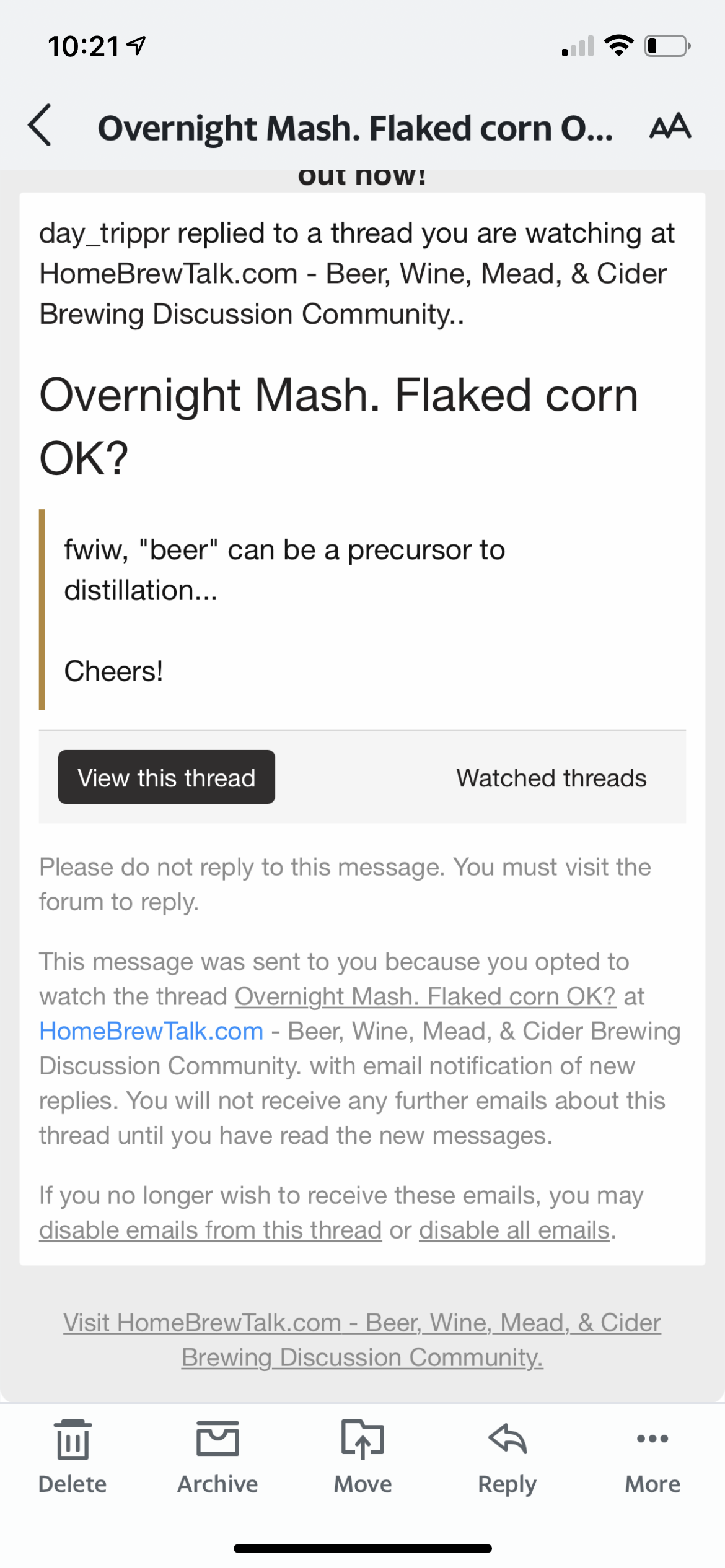cadarnell
Well-Known Member
I was going to sneek in a brew this week by using the overnight mesh method. I will be using 20% faked corn in my recipe. Does that matter when using that method? Does the recipe matter all, or can any recipe be mashed overnight? I'm looking at mashing in my kettle and I have a very low setting on my oven that I use to maintain temp, so I should be able to hold my temp overnight. Cheers!



















































![Craft A Brew - Safale S-04 Dry Yeast - Fermentis - English Ale Dry Yeast - For English and American Ales and Hard Apple Ciders - Ingredients for Home Brewing - Beer Making Supplies - [1 Pack]](https://m.media-amazon.com/images/I/41fVGNh6JfL._SL500_.jpg)








